Eye on target: Chalmers brushes off business fears on ‘unrealistic’ 83 per cent green energy goal
Jim Chalmers has dismissed concerns from the nation’s largest business body that Labor will have to revisit its renewables target of 82 per cent by 2030 amid crippling energy prices and looming supply shortfalls.
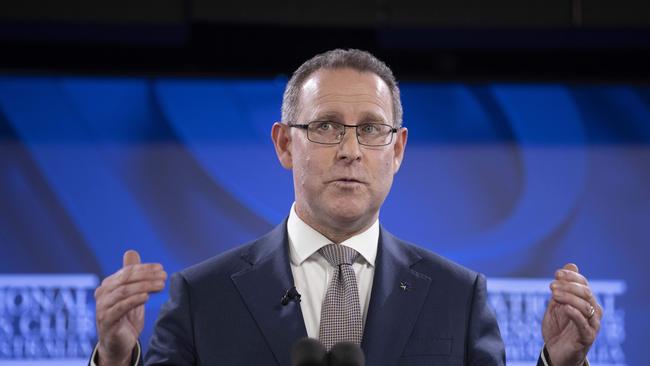
Jim Chalmers has brushed off concerns from the nation’s largest business body that Labor will have to revisit its renewables target of 82 per cent by 2030 amid crippling energy prices and looming supply shortfalls, saying the government will hit its green goals.
Australian Chamber of Commerce & Industry chief executive Andrew McKellar said the Albanese government was “putting all the eggs in one basket” with its renewables-focused policy, calling for a fast-tracking of gas exploration, extraction and generation projects to avoid price spikes and blackouts.
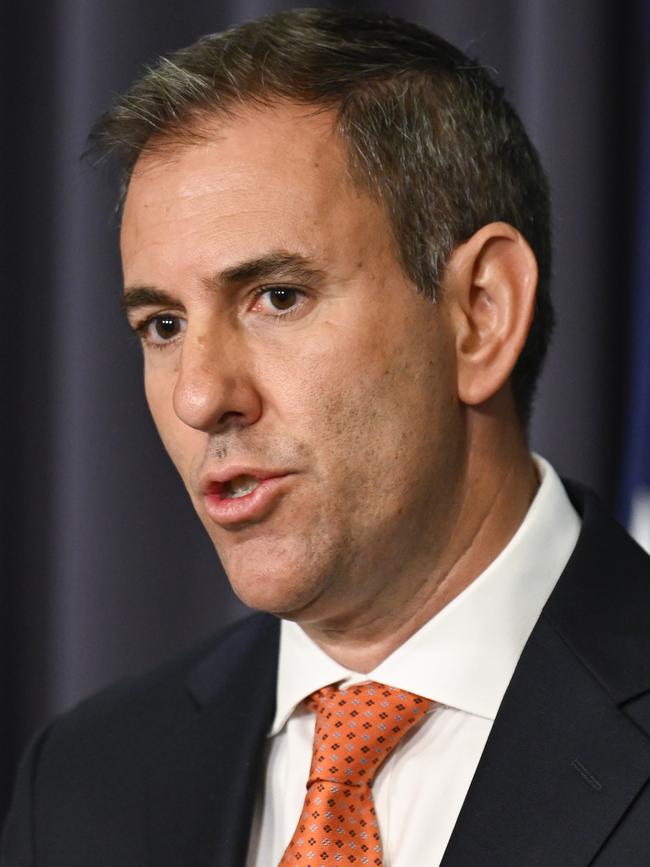
He also called Anthony Albanese to hold urgent talks with gas executives to “unleash the shackles” of the resource so it can play a bigger role in Australia’s electricity sector.
The Albanese government supports an increased role for gas for the energy transition but industry is frustrated at the lack of action to bring on new supply and new generation.
As parliament returned for the first time this year, the Treasurer said the government was committed to gas, but did not say whether the government would facilitate the requested talks.
“Well, first of all, we’ve made it really clear that gas has got a role to play in the energy transformation. I think any sensible, hard headed assessment of our energy needs understands that there’s a role for gas and there’s a role for new supply,” the Treasurer said in Canberra.
“I think we’ve made that clear on a number of occasions.”
Dr Chalmers also said the government was focused on meeting the 82 per cent target, despite concerns from business that the goal is unrealistic.
“We’re serious about this energy transformation, and in order to hit our targets, we need to make sure that there’s more cleaner and cheaper renewable energy in the system, and that’s what guides our efforts,” he said.
While he stressed ACCI was supportive of the Paris agreement and the transition to net-zero emissions by 2050, Mr McKellar said he was doubtful the 82 per cent renewables target was realistic.
“The target of getting to 82 per cent of renewable energy by 2030 Is that realistic? Is that on track? I think that’s doubtful,” Mr McKellar said.
“There has to be a strong focus on exploration, production and energy generation using gas in the interim.
“Sure renewables will be the backbone of the energy supply in the medium to longer term, but we have to have viable options in the short term.”
When asked if Labor should revisit the 82 per cent target, Mr McKellar said: “I would say they are going to have to.”
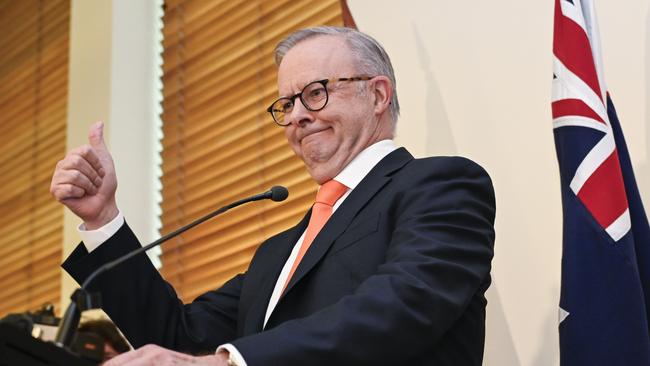
Council of Small Business Organisations Australia chief executive Luke Achterstraat said the 82 per cent target should be reassessed as to “whether it is fit for purpose and able to drive down energy bills”.
“We need to make sure the energy transition doesn’t leave small business behind,” Mr Achterstraat said.
“Energy bills are crippling the ability for operators to stay in business.”
The interventions from ACCI and COSBOA came after the Independent Food Distributors Australia urged Labor to dump its renewables target and focus on ramping up more gas and coal production to bring electricity prices down in the short term.
Climate Change and Energy Minister Chris Bowen said that extending the life of coal-fired power stations – as called for by the IFDA – would increase the price of electricity.
“Power prices will be higher under Peter Dutton because of nuclear energy, the most expensive form of energy,” Mr Bowen said on Monday.
“And also, because his policy, as they admit, would involve keeping coal in the grid for longer, which is highly unreliable, and as the Australian Energy Regulator has pointed out, when we’ve had high levels of coal-fired power break downs, that has led to price spikes.”
Opposition energy spokesman Ted O’Brien said the Coalition would “replace Labor’s ideological approach to energy, with pragmatism and a laser focus on costs”.
“Unlike Labor, we will not be pushing the premature closure of Australia’s baseload power plants,” Mr O’Brien said.
“It doesn’t matter what Albanese and Bowen say, the reality is that we’re not ready to blow up our coal plants.
“And nor will we continue to suffocate gas which forces prices up and increases the risk of blackouts.
“We will pour more gas into the market and get it to where it needs to go.”
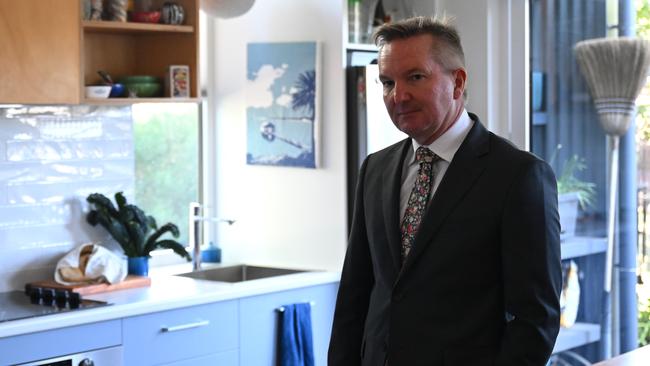
Mr McKellar said the Labor government should focus on promoting private sector investment in gas peaking plants and working with producers on progressing developments that would increase supply.
Mr McKellar said the government should keep an open mind to investing in more gas peaking plants – as it has in the Kurri Kurri plant in the Hunter Valley – but this was not the preferred option.
“There’s plenty of players in the market, but the incentives have to be there for them to do that,” the ACCI chief said.
“We’ve had mixed signals for too long, but they really have to unleash the shackles, and they have to sit down with the industry and see what can be done to minimise the risks that we are facing at the moment.
“We need to ensure that we’ve got all options on the table and, at the moment, that is not the case.”
The energy debate comes as cost of living is likely to be a major theme of the first parliamentary sitting week of the election year, with Mr Albanese using a speech to Labor MPs on Monday to talk up the government’s record in managing the economy.
“We begin 2025 with a great sense of optimism,” the Prime Minister told MPs.
“Inflation is down. Wages are up. Unemployment is low.
“We provide cost-of-living relief for people who are most in need, in a way that helped to put that downward pressure on inflation, rather than what some of the economics orthodoxy would suggest we do.”
Mr Albanese talked up the headline inflation rate of 2.4 per cent as being “in the bottom half” of the Reserve Bank’s 2-3 per cent target, despite the RBA looking through the headline figure as it is being distorted by temporary electricity rebates.
While many economists believe the underlying inflation rate of 3.2 per cent is enough to justify an interest-rate cut at the RBA’s next board meeting on February 18, a new report from KPMG argued that a tight labour market was “not yet at a place to justify monetary loosening”.
“The gradual easing in the labour market we had started to see has now stalled, with the unemployment rate back at 4 per cent and labour force participation at a record high,” said KPMG chief economist Brendan Rynne.
Australian Industry Group chief executive Innes Willox blamed the global prices of coal and gas for high energy prices.
Mr Willox backed wind and solar to “provide most of the bulk energy we use”.
“But gas peakers have a very important backup role in an increasingly renewable grid,” Mr Willox said.
“Alongside the rest of the urgent infrastructure build out, we need to make sure those peckers are investable.”
Master Plumbers Australia & New Zealand chief executive Nathaniel Smith said the “idea that renewables and storage alone will bring prices down is untested at the scale required”.
“Prematurely shutting down existing baseload power could have severe consequences for businesses and households,” Mr Smith said.
“While renewables are essential to the future, setting rigid targets without ensuring reliable baseload power could lead to price volatility and supply issues.
“The federal government must consider a balanced approach with natural gas as a transitional energy source.”
Energy Users Association of Australia chief executive Andrew Richards backed the government’s 82 per cent renewables target.
“Even if the federal government walked back the 82 per cent target by 2030, which we don’t recommend they do, state governments will continue to pursue aggressive decarbonisation targets as will many large commercial and industrial energy users,” Mr Richards said.
“In many ways having a single nationally consistent approach is far more efficient and therefore cheaper than an alternative approach of ad hoc state-based schemes.”


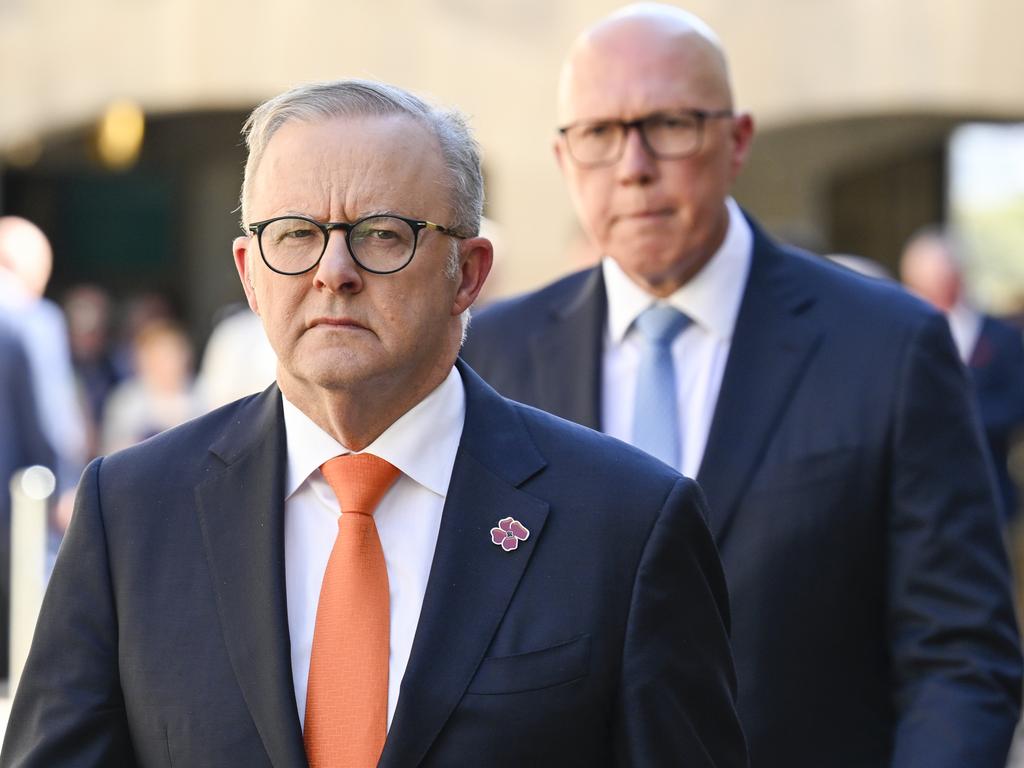




To join the conversation, please log in. Don't have an account? Register
Join the conversation, you are commenting as Logout